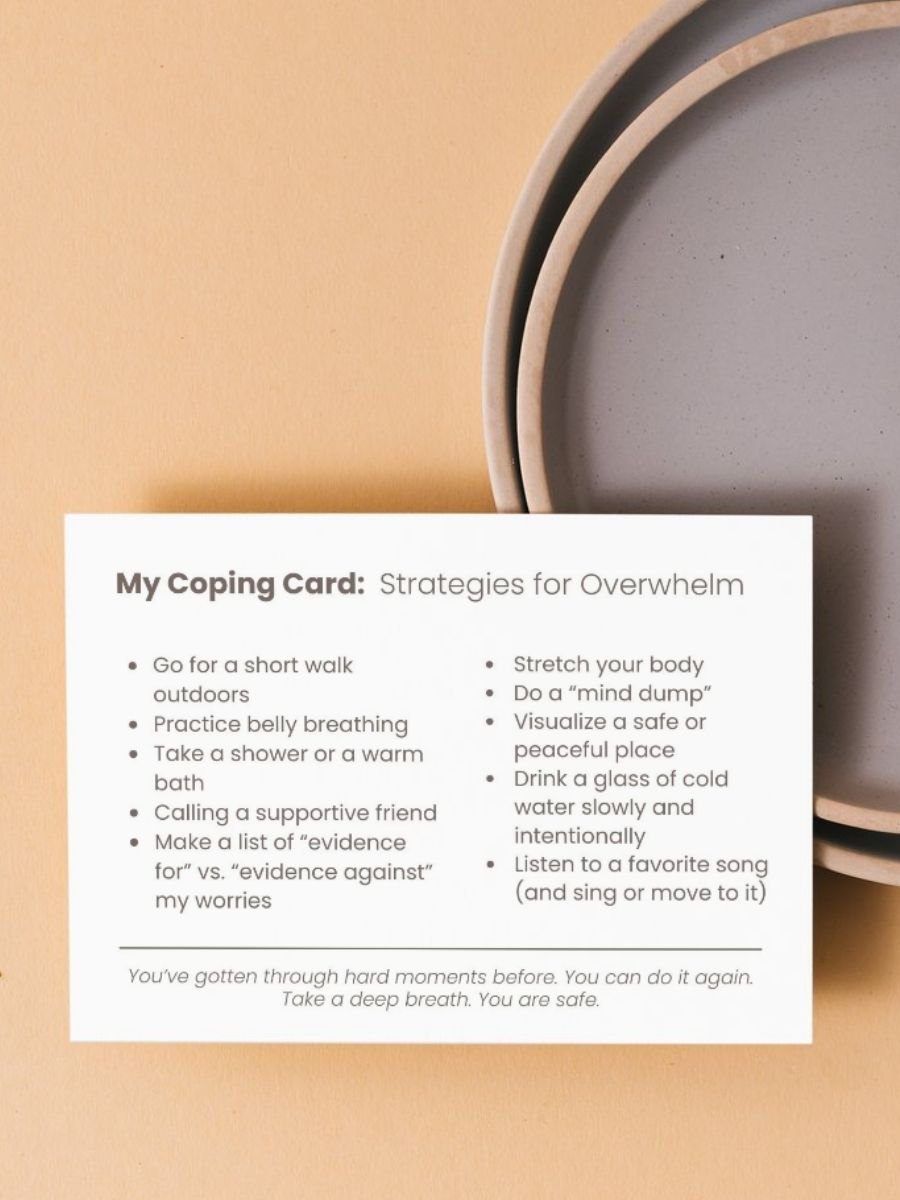What To Do When You’re Overwhelmed: Don’t Forget to Cope
Coping with overwhelming thoughts and emotions requires energy—not just to engage in a coping behavior but also to think of the behavior or skill in the first place. When we feel overwhelmed, it is common to later reflect on our actions and wonder, “Why didn’t I do X? I know it usually helps me feel better.” There is a good reason why strategies that seem obvious in hindsight may not come to mind in the moment.
DISCLAIMER: I am a licensed clinical psychologist, and the information provided here is for general informational and educational purposes only. While I aim to share helpful and thoughtful content, reading this blog does not establish or imply a therapist-client relationship between us.
If you are experiencing a mental health crisis, please seek immediate help from a licensed professional or contact emergency services in your area. This blog should not be a substitute for professional mental health care or personalized guidance.
For personalized support or therapy services, please reach out directly to a licensed mental health provider in your area.
The Biology of Emotions
When we are emotionally activated, our brains can become hijacked by that activation. We process information from our environment through our senses (sight, touch, sound, etc.), which is then transmitted through our nervous system to the brain. This information first passes through the brainstem, then the limbic system, and finally the prefrontal cortex.
To Put It Simply:
The brainstem manages basic survival functions like breathing and the fight-or-flight response.
The limbic system processes emotions.
The prefrontal cortex is responsible for complex thinking, rational decision-making, and problem-solving.
Because of this pathway, emotional responses often occur before rational thought has a chance to intervene. This is why it can be difficult to think clearly and choose effective coping strategies when experiencing intense emotions.
How To Go From Emotional Thinking to Rational Thinking
Since rational thinking is often impaired when emotions are heightened, it helps to have strategies in place to support yourself before overwhelming moments occur. Here are two practical approaches:
1. Develop a Mindfulness Practice
Mindfulness helps you become aware of your emotions without immediately reacting to them. By practicing mindfulness regularly, you can train yourself to slow down and create space between feeling an emotion and responding to it. This can make it easier to choose helpful coping strategies with intention rather than reacting impulsively.
2. Create a Coping Card
A coping card is a practical tool that serves as a reminder of effective strategies you can use when you are feeling overwhelmed. Because decision-making can be challenging in stressful moments, having a pre-prepared list of options can help guide you toward relief more quickly.
How to Make a Coping Card
1) Set Aside Time When You Feel Calm
Choose a moment when you are not feeling overstimulated or emotionally drained.
Reflect on strategies that have helped you in the past or ones you’d like to try.
2) Create Your List
Write down several strategies that you find helpful. Examples include:
Going for a short walk outdoors
Practicing belly breathing
Take a shower or a warm bath
Calling a supportive friend
Making a list of “evidence for” vs. “evidence against” your worries
3) Make It Accessible
Write your list on a notecard and place it somewhere easy to find, such as:
Taped to your computer or bathroom mirror
Inside your wallet
Next to your bed
Consider making multiple copies and storing them in different places.
You can also take a photo of the list or save it in a notes app on your phone.
4) Include Encouragement
Adding a short message of encouragement to yourself can be a powerful reminder that you have the ability to cope.
Examples:
“You’ve gotten through hard moments before. You can do it again.”
“Take a deep breath. You are safe.”
Give It a Try
While creating a coping card might seem simple, it can sometimes feel overwhelming to choose the right strategies. You might overthink or dismiss possibilities. If you need support, consider brainstorming with a trusted friend, family member, or mental health provider.
If you are looking for guidance in managing overwhelming emotions and building effective coping strategies, I’m here to help. Reach out if you’d like to explore these tools further.
Summary / TL;DR:
When you're overwhelmed, it's harder to think clearly, let alone cope. This post explains why emotional overload blocks rational thought and how tools like mindfulness or a coping card can help. If you're ready to learn more personalized ways to manage anxious thoughts and big feelings, check out my anxiety management page for details on how individual therapy can support you.






